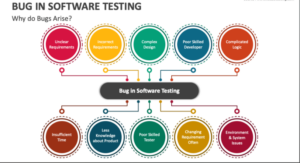Data Ware Houses is constructing and also using the data warehouse. A data warehouse can be constructed by integrating data from multiple heterogenous sources that may support analytical reporting structured and adhoc queries and also decision making. Data warehousing involves data cleaning, data integration and also data consolidations.
When we use data warehouse information?
There can be many support technologies that may help utilise the data that is available in the data warehouse very fast and quick and also effectively. This will gather data and analyse it and also take some decisions depended on the information that is sent in the warehouse. The information that is gathered in a warehouse that can be used in the following of the domains
- Tuning production strategies-This product strategies can well tuned by the repositioning the products and managing the product portfolios by comparing the sales.
- Customer analysis- customer analysis will be done by analysis will be done by analysing the customer’s buying preferences, buying time, budget cycles.etc.
- Operations analysis- Data warehousing will always help in customer relationship management, and making the environmental corrections. This information will also allow us to analyze business operations.
Functions of data warehouse tools and utilities
- Data extraction- It involves gathering of the data from multiple heterogenous sources.
- Data cleaning- This is used for finding and correcting the errors in data.
- Data Transformation- This involves converting the data from legacy format to warehouse format.
- Data loading- It involves sorting, summarising, consolidating, checking the integrity the building indices and partitions.
- Refreshing-It involves updating from the data sources to warehouse.
There are many terminologies of Data warehouse:
Meta data:
Meta data is simply defined as data about data- an information about an information. The data that is used to represent other data is known as metadata. For example the index of a book service as a metadata for the contents in the book. In the data warehouse we can define the metadata as:
- Meta data can be a road map to data warehouse.
- Meta data in data warehouse will define the warehouse objects.
- Meta data acts as a directory .This directory will help the decision support system to locate the contents of the data warehouse.
Meta data repository:
Meta data repository will be an integral part of a data warehouse system. It contains the following data
- Business metadata- This contains the data ownership information, business definition and changing policies.
- Operational metadata- This includes currency of data and also data lineage.currency of data refers to the data that is being active archived or purged. Lineage of data means history data being active, migrated and transformation that is applied on it.
- Data for mapping from operational environment to data warehouse-It metadata includes sources databases and their contents, data extraction, data partition, cleaning, transformation rules, data refresh and purging rules.
The key characteristics of Data warehouse:
- Subject oriented- A data warehouse is subject oriented as it provides topic wise information rather than the overall processes of business like subjects may be sales, promotion, inventory etc. For example if we want to analyse our company’s sales data that we need to build a data warehouse that concentrates on sales. As such a warehouse will provide valuable information like who was the best customer last year?
2. Integrated- A data warehouse is developed by integrating data from the varied sources into the consistent format. The data will be kept in the warehouse in a consistent and universally acceptable manner in terms of naming, format and coding.
3. Non-volatile- Data once entered into data warehouse that must be unchanged. All data will be read-only. Many previous data what helps you help analyse what has happened and when.
4.Time variant- The data stored in data warehouse is documented with an element of time either explicitly or implicitly.
Questions
1. What is Datawarehouse?
2. What are the characteristics of Data warehouse?






























